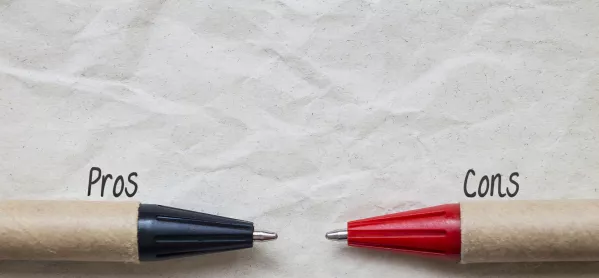I’ve long been a supporter of Twitter as a tool for improving classroom practice. Recently, however, I’ve been rethinking that and I’m now a little unsure - so here are my pros and cons of Twitter in education:
Pros
Ideas Twitter can be a great way to share ideas and resources - even if it’s just a chance to steal a glance at wall displays from some far-flung classroom.
Research If you follow the right people then you can have academic research and opinion at your fingertips. I’ve always enjoyed the pedagogy that pops up on my feed as I follow the kind of academics who inspire and interest me.
Self-promotion Twitter can be an easy platform to promote yourself, your work, your class or your ideas and as such it should be valued. I’ve met shy teachers who would never dream of sharing in person so Twitter is a good way for them to show people how good they can be too.
Scottish EduTwitter: What’s the best thing you’ve seen happen in a school recently?
Quick read: ‘Because of Twitter, I’m better at my job’
Moanfests: ‘Stop moaning on Twitter - we need to sell teaching’
Cons
Teacher shaming I like that teachers can share ideas and resources, but I really hate when teachers boast about how hard they’re working over a holiday or how much they’ve done over a weekend. It’s too available and in your face for teachers who really needed a weekend off or are trying to enjoy time away from school. I’d love to just ban teachers talking about how much work they’re doing and keep it all about supporting each other.
The selfie I don’t enjoy the group selfies at conferences or training courses. Being in a selfie doesn’t mean you participated well or got something out of the event, but it does “look good”.
Pictures There is a demand in some schools to churn out regular photographs of the children working or of the pupils’ work. This can, in some instances, create a culture of doing work that is “photogenic” and perhaps not focused enough on the actual learning and teaching.
Pedagogy Misconceptions can be easily shared and started via social media and I think pedagogy can often be overlooked. I recently watched a bright and confident video of a teacher using Numicon, a resource for helping children visualise numbers. It looked good and lots of teachers jumped on board, declaring how excited they were to try this in class. However, within the video there were pedagogical implications and assumptions that had to be made on the pupil’s prior learning that weren’t made explicit to the viewer. We should be careful before jumping on the bandwagon and copying things on Twitter.
Overall, then, I think I’m still in favour of using Twitter as a teacher and I still get enough out of it to more than compensate for the downsides. That said, I was speaking to an old mentor of mine who was seriously thinking of removing himself from Twitter permanently - he’d had enough of pedagogy being overlooked while misconceptions and falsehoods were shared liberally.
To be honest, I don’t think I can really blame him.
Adam Black is a teacher in Scotland who, in the New Year’s Honours list, received the British Empire Medal for raising awareness of stammering. He tweets @adam_black23





